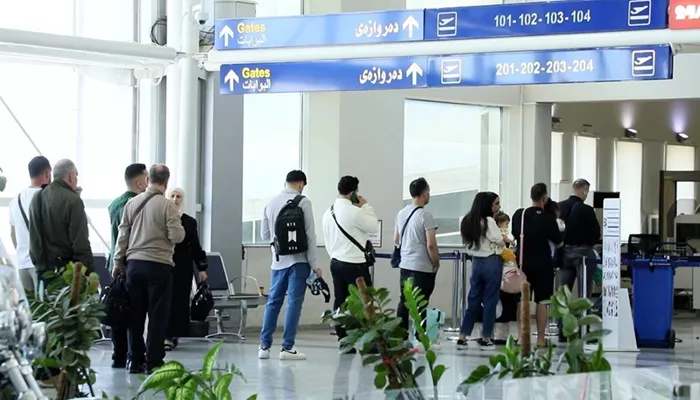Navigating the process of obtaining a work permit in Singapore can be complex, but it is essential for foreigners seeking employment in this vibrant city-state. This article will explore the various types of work permits available, the requirements for obtaining them, and the overall ease of securing a work permit in Singapore.
Types of Work Permits in Singapore
Singapore offers several types of work permits tailored to different categories of workers. Understanding these categories is crucial for applicants to determine which permit suits their qualifications and job offers.
1. Employment Pass (EP)
The Employment Pass is designed for skilled foreign professionals, managers, and executives. To qualify for an EP:
Salary Requirement: Applicants must earn a minimum monthly salary of S$5,000 (approximately USD 3,760) as of September 2023. For those in the financial services sector, the minimum salary is S$5,500 (USD 4,136).
Qualifications: Candidates must possess acceptable qualifications, typically a degree from an accredited institution.
Validity: The pass is valid for up to two years and can be renewed.
2. S Pass
The S Pass is aimed at mid-skilled workers. Key requirements include:
Salary Requirement: A minimum monthly salary of S$3,000 (approximately USD 2,256).
Qualifications: Applicants must have relevant qualifications or work experience.
Validity: The S Pass is also valid for up to two years.
3. Work Permit for Foreign Workers
This permit is intended for semi-skilled foreign laborers in sectors such as construction and manufacturing. Important points include:
Eligibility: Workers typically come from specific countries and must have a job offer from a Singapore-based employer.
Validity: The work permit is valid for up to two years.
4. Training Employment Pass
This pass is for foreign students undergoing practical training in Singapore:
Salary Requirement: Applicants must earn at least S$3,000 per month.
Duration: Valid for the duration of the training program.
5. Work Holiday Pass
Available for students and graduates aged 18 to 25 from certain countries who wish to work while holidaying in Singapore:
Duration: Valid for six months.
Requirements for Obtaining a Work Permit
Securing a work permit involves meeting specific criteria and submitting necessary documentation. The following are general requirements applicable to most work permits:
Valid Passport: Applicants must hold a valid passport.
Age Requirement: Must be at least 18 years old.
Job Offer: A confirmed job offer from a Singapore-based employer is mandatory.
Qualifications and Experience: Relevant educational qualifications or work experience must be documented.
Employer Registration: Employers must be registered with the Ministry of Manpower (MOM) in Singapore.
Application Process
The application process can vary depending on the type of work permit being applied for but generally includes the following steps:
Employer Application:
Employers or employment agents submit applications on behalf of foreign workers through the MOM’s online portal.
An application fee is required; this varies by permit type but generally starts around S$30.
Documentation Submission:
Necessary documents include identity proof, educational certificates, and employment testimonials.
Employers must provide their business profile registered with ACRA (Accounting and Corporate Regulatory Authority).
Processing Time:
Online applications typically take about three weeks to process, while manual applications may take longer.
In-Principle Approval (IPA):
If approved, employers receive an IPA letter allowing the employee to enter Singapore within six months (or 60 days for S Pass holders).
Issuance of Work Permit:
Upon arrival in Singapore, employees must register their fingerprints and photo at designated centers within two weeks to receive their official work pass card.
Is It Easy to Get a Work Permit?
The ease of obtaining a work permit in Singapore largely depends on several factors:
1. Skill Level and Demand
Singapore has a high demand for skilled professionals, particularly in sectors like technology, finance, and healthcare. Those with specialized skills or qualifications may find it easier to secure employment and obtain an EP or S Pass.
2. Employer Support
Having an employer who understands the application process can significantly streamline obtaining a work permit. Employers familiar with MOM regulations can assist with documentation and ensure that applications are completed correctly.
3. Compliance with Regulations
Singapore maintains strict regulations regarding foreign employment to protect local job opportunities. Employers must comply with quotas and salary requirements when hiring foreign workers, which can complicate the process if not adhered to properly.
4. Changes in Policies
The Ministry of Manpower frequently updates policies regarding work permits based on economic conditions and labor market needs. Staying informed about these changes is crucial for both employers and potential employees.
Challenges Faced by Applicants
While many find success in obtaining work permits, several challenges can arise during the process:
Documentation Issues: Incomplete or incorrect documentation can lead to application delays or rejections.
Salary Requirements: Meeting the minimum salary threshold can be challenging for some applicants, particularly those entering less skilled positions.
Quota Limits: Employers may face restrictions on hiring foreign workers based on industry quotas set by the government.
Conclusion
Obtaining a work permit in Singapore involves navigating various regulations and requirements tailored to different skill levels and industries. While many find it relatively straightforward—especially skilled professionals—applicants should be prepared for potential challenges related to documentation and compliance with local laws.
In summary, while it may not be universally “easy” to get a work permit in Singapore due to varying factors such as skill level and employer support, those who meet the necessary criteria often find success through diligent preparation and understanding of the application process. As Singapore continues to evolve economically, staying informed about changes in immigration policy will remain essential for both employers and foreign workers alike.
Related topics:
- Requirements for Singapore Tourist Visa
- Is Getting PR in Singapore Easy?
- How to Apply for a Taiwan Visa in Singapore?


